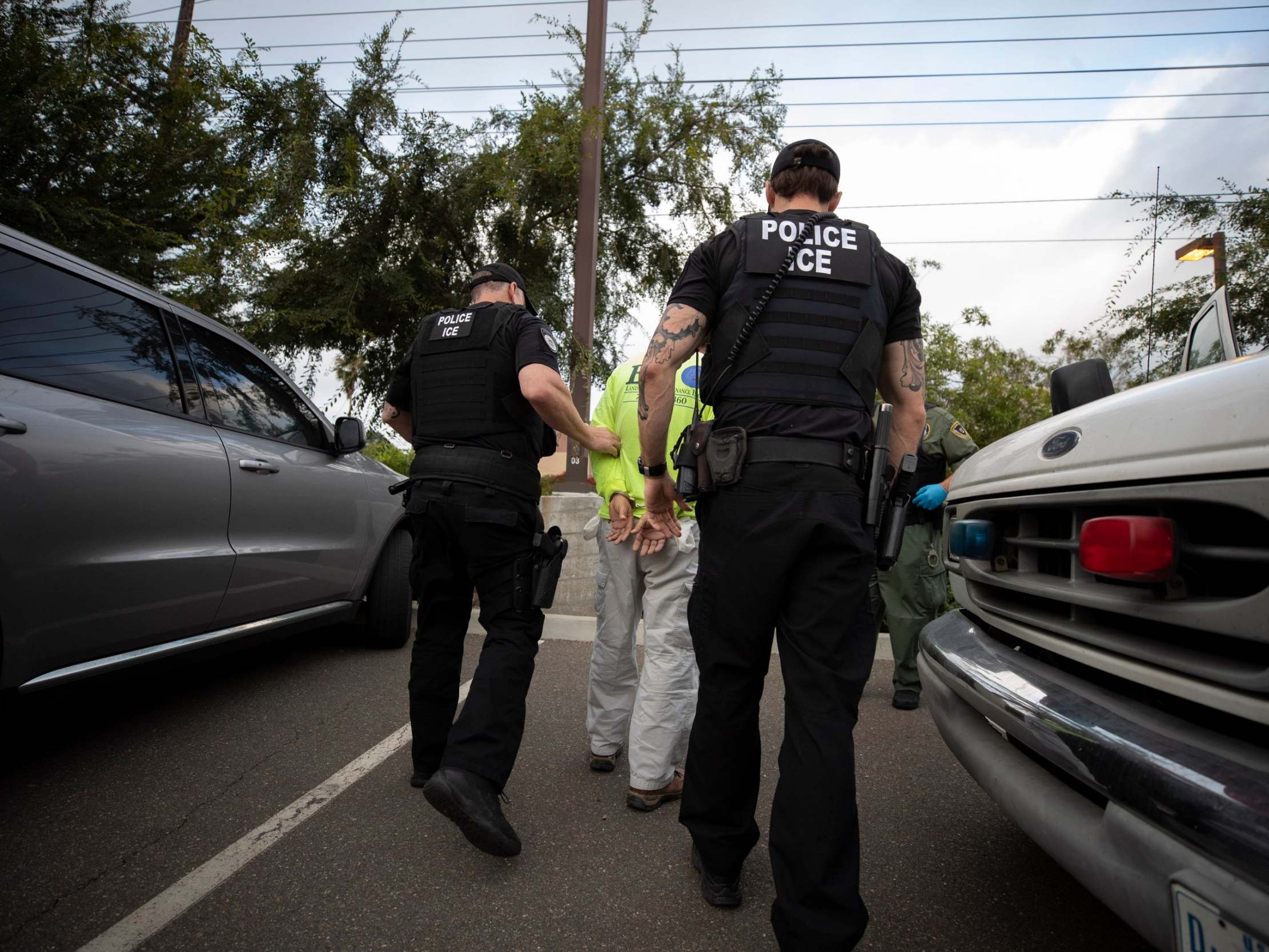Trump administration expands 'fast-track' powers to deport people without going to court
Immigrants will be sent home ‘with less due process than people get in traffic court’, says civil liberties group
Your support helps us to tell the story
From reproductive rights to climate change to Big Tech, The Independent is on the ground when the story is developing. Whether it's investigating the financials of Elon Musk's pro-Trump PAC or producing our latest documentary, 'The A Word', which shines a light on the American women fighting for reproductive rights, we know how important it is to parse out the facts from the messaging.
At such a critical moment in US history, we need reporters on the ground. Your donation allows us to keep sending journalists to speak to both sides of the story.
The Independent is trusted by Americans across the entire political spectrum. And unlike many other quality news outlets, we choose not to lock Americans out of our reporting and analysis with paywalls. We believe quality journalism should be available to everyone, paid for by those who can afford it.
Your support makes all the difference.Donald Trump’s administration has set out a plan to speed up deportations of migrants by removing court oversight and enabling officials to remove people from the country in days rather than months or years.
The rule is aimed at enforcing the “expedited removal” of the majority of those who enter the US illegally – unless they can prove they have been living in the country for at least two years.
Beginning today, fast-track deportations can apply to anyone in the country without proper documentation for less than 48 months. Previously, those deportations were largely limited to people arrested almost immediately after crossing the Mexican border.
The American Civil Liberties Union (ACLU) said it would challenge the policy in court, claiming it shreds basic legal rights.
“Under this unlawful plan, immigrants who have lived here for years would be deported with less due process than people get in traffic court,” said Omar Jawdat, director of the ACLU’s Immigrants’ Rights Project.
Vanita Gupta, president of the Leadership Conference on Civil and Human Rights, added: “The Trump administration is moving forward into converting Immigrations and Customs Enforcement (ICE) into a ‘show me your papers’ army.”
Kevin McAleenan, the acting secretary of the Department of Homeland Security, claimed the new rule would address an “ongoing crisis on the southern border”.
US authorities do not have space to detain “the vast majority” of people arrested at the border, leading to the release of hundreds of thousands with notices to appear in court, he said.
He claimed the Homeland Security officials with the new deportation power will deport migrants in the country illegally more quickly than the Justice Department’s immigration courts, where cases can take years to resolve.

Mr Trump has struggled to stem an increase of mostly Central American families arriving at the US-Mexico border, leading to overcrowded detention facilities and a political battle over a growing humanitarian crisis.
Nearly 300,000 out of an approximate 11 million illegal immigrants in the US could be quickly deported under the new rule, according to the nonpartisan Migration Policy Institute.
“Expanding the fast-track procedure to apply anywhere in the US is a recipe for ripping thousands more families apart and devastating communities,” said Grace Meng, Human Rights Watch’s US acting deputy director. “This is a massive and dangerous change.”
Earlier this week, a US district judge heard arguments about whether to temporarily strike down a separate rule introduced by the Trump administration last week, designed to bar almost all immigrants from applying for asylum at the country’s southern border.
Judge Timothy Kelly, in the US district court for the District of Columbia, withheld ruling on whether to issue a temporary restraining order to block the rule on asylum seekers pending a trial, saying he would make that decision soon.
A judge in San Francisco has set a hearing for Wednesday over a similar lawsuit.
The US Customs and Border Protection agency was later forced to admit that no new stretches of border wall had been built since Mr Trump took office, with all the work so far going on repairs to existing barriers.
Additional reporting by agencies

Join our commenting forum
Join thought-provoking conversations, follow other Independent readers and see their replies
Comments